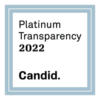Choosing a Career After High School

Are you starting to think about your future and what you will do for work? Are you concerned about choosing a career after high school?
Well, you’re far from alone! Once highschoolers reach junior or senior year, nearly all of them begin wondering what comes next. For many students, the next step is college. For others, diving head first into a career is the smartest move. But what makes the most sense for you?
Let’s take a look at some steps you can follow to select the best career path after high school!
The first step to choosing a career after high school: Identify your strengths
What school subjects do you enjoy the most? Did you enjoy math and science more than English and history? Or were you more adept at foreign languages? If you were in a job training or vocational track, did you enjoy the career-related programs on offer?
Students who performed well in – and enjoyed – the college preparatory courses they completed should probably consider college as the next step. That’s not true for all of those students, but it’s certainly true for many of them. If you didn’t enjoy those courses so much, you might consider moving directly to a career after high school.
And if you simply aren’t sure, that’s ok! Many people aren’t. Ask your school’s guidance counselor about taking a career test that can help you identify your greatest strengths. These tests can show you what you’re best at and how to apply those skills to a real-world career.
Be realistic about money – and we’re not just talking about earnings
Whether you choose college, a job training program, trade school, or some other path, there’s a good chance you will enroll in some kind of training. Most, but not all training, costs money.
The big question is this: Will you make enough money after the training to justify the cost of the training or education itself?
In other words, is the training a good investment?
Some kinds of training are and others aren’t. For example, attending a public college or university and paying in-state tuition for a degree in a high-demand field with high salaries is probably a good investment. On the other hand, attending a private or for-profit college and paying thousands more for a degree in a not-so-in-demand field might not be as safe a bet.
The same holds true for community college and trade school programs. Will the earnings from your job be enough to pay off any loans you took out to receive the education or training?
Most financial advisors tell students not to borrow more money for school or training than you’re likely to earn working in your field during the first year. In other words, if the job pays $40,000 per year during the first year and you have to borrow $20,000 to pay for your education or training, that’s probably ok. But if it pays $40,000 and the degree costs $80,000, that might be a problem!
Are there low-cost or no-cost training options?
So, you think college isn’t for you? That’s ok! You can still start a good career right out of high school. Consider fields that offer:
- A low barrier to entry or low-cost training
- In-demand skills that you can mostly learn on the job
- The potential to earn more money as you gain experience
Construction is one industry where you don’t have to have a college degree and the cost of training could be very low. Many people train for construction careers by attending a community college program for plumbing, electrical contracting or HVAC. That’s one way to do it, but you’ll still have tuition – and possibly loans.
Others choose to train via a dedicated job training program, such as Construction Ready. At Construction Ready, we train recent high school graduates to begin careers in construction. The training lasts just 20 days and is fully funded by private donations and government grants. You don’t have to pay anything to participate!
97% of our students have jobs lined up in high-earning construction professions before they graduate from our program! If Construction Ready or a similar program is in your area, it’s probably the best way to get your foot in the door at a construction company and begin a career in the skilled trades.
Remember: Talk to your teachers and your guidance counselors
That’s why they’re there!
Your guidance counselor, in particular, is available to help you chart your course after graduation. Choosing a career path after high school is a major undertaking and can be intimidating. Teachers and counselors can help you identify your strengths, educate you about the different career and training options available to you, and help you take the first steps.
The only way not to get on track for the right career is to kick the can down the road or settle for a low-wage job with no room to grow or increase your pay. Don’t do that! Use the resources at your disposal. Your teachers and counselors want to help!
We’re looking for recent high school graduates for our program
Many Construction Ready graduates enrolled in our 20-day program right out of high school. Just a year or so into their first construction job, they’re already earning more than many of their peers and are on track to enjoy long, fulfilling, and high-earning careers!
If you’re choosing a career after high school and want to learn more about Construction Ready, contact us today to sign up for an info session!


